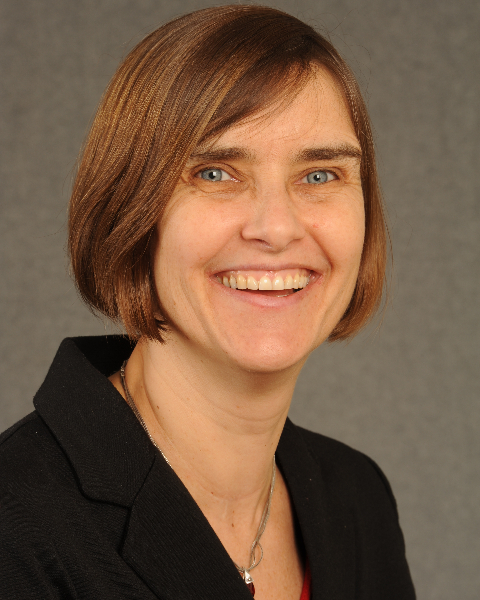Symposia
Dissemination & Implementation Science
3 - (SYM 122) Caregiver Videos for Supporting Executive Functions in Elementary School-age Children

Lauren Kenworthy, Ph.D. (she/her/hers)
Chief, Division of Pediatric Neuropsychology
Center for Autism Spectrum Disorders, Childrens National Hospital
Rockville, Maryland- KA
Katie C. Alexander, OTD, MS, OTR/L (she/her/hers)
Occupational Therapist
The Occupational Therapy Institute
La Mesa, California - AR
Allison Ratto, PhD (she/her/hers)
Assistant Professor
Children's National Hospital
Rockville, Maryland - KH
Kristina Hardy, PhD (she/her/hers)
Pediatric Neuropsychologist
Children's National Hospital
Rockville, Maryland - BA
Bruno Anthony, PhD (he/him/his)
Professor
Children's Hospital of Colorado
Aurora, Colorado - MG
Meredith W. Gunn, PhD, MSW (she/her/hers)
Director of Instructional Technology
Innovations Institute, University of Connecticut School of Social Work
Hartford, Connecticut - KD
Kaitlyn Decker, MS (she/her/hers)
Education Program Assistant 2
Innovations Institute, University of Connecticut School of Social Work
Hartford, Connecticut - DB
Dennard Brown, Jr., B.S. (he/him/his)
Multimedia Technician
The Institute for Innovation and Implementation, University of Maryland School of Social Work
Baltimore, Maryland - JW
Jacob Whiteford, MS (he/him/his)
Lead Instructional Developer
Innovations Institute, University of Connecticut School of Social Work
Hartford, Connecticut - LA
Laura G. Anthony, PhD (she/her/hers)
Professor
Children's Hospital of Colorado
Aurora, Colorado - MW
Monica A. Werner, LCPC, MA (she/her/hers)
Licensed Clinical Professional Counselor
Monica Werner Counseling
Chevy Chase, Maryland - JV
Jessica V. Smith, B.S. (she/her/hers)
Clinical Research Assistant
Children's National Hospital
Rockville, Maryland - AV
Alyssa Verbalis, PhD (she/her/hers)
Clinical Research Program Manager
Children's National Hospital
Rockville, Maryland - TD
Tennyson Dahlman, B.S.
Professional Research Assistant
University of Colorado Anschutz Medical Campus
Aurora, Colorado - AA
Anna C. Armour, MA (she/her/hers)
Research Coordinator
Children's National Hospital
Rockville, Maryland - JH
Jessica Holmes, M.S., Ph.D.
Research Services Principal Professional
University of Colorado Anschutz Medical Campus
Aurora, Colorado - LC
Lynn Cannon, M.Ed.
Social Learning Coordinator
The Maddux School
Rockville, Maryland
Speaker(s)
Co-author(s)
Caregivers are powerful teachers in the daily lives of their children. Internet-based caregiver training overcomes barriers to access related to geography, insurance, financial status, transportation, scheduling limitations, and pandemic-related shutdowns. It also allows caregivers repeated access to the materials, which promotes generalization of skills.
We developed and evaluated the first online free suite of videos for caregivers in English and Spanish that describe how to recognize executive function (EF) problems, and teach evidence-based strategies for supporting children with EF challenges and for modeling EF skills.
Content was based on in-person caregiver trainings from Unstuck and On Target treatment trials. An advisory board of educators, caregivers of children with autism or ADHD, an autistic parent/self-advocate, and a cultural competence expert advised on the videos. Caregivers (n=102; 91.1% female, 62.7% white, Myearseducation=16.6) of 3rd-5th grade children with flexibility challenges and symptoms of autism or ADHD provided qualitative feedback (thematically coded) on the videos, and rated them for feasibility and acceptability. Caregiver knowledge, strain and empowerment, and child EF problems were measured before and after the videos were viewed.
12 English (1 hour total) and 5 Spanish videos were created using animation, and caregiver and expert interview formats. The video suite was refined based on caregiver suggestions, including the addition of 3 Troubleshooting videos by a Black psychologist to balance the White experts already presented in the videos. Caregivers found the videos helpful (M=4.01(0.14),range:1-5) and indicated they would recommend them to others (M=4.61(0.57)). Their understanding of their child’s EF challenges increased between pre and post, (t(69) = -7.313, p < 0.001, 95% CI [-0.746, -0.426], Cohen’s d = 0.874); as did caregiver knowledge (t(88) = -14.210). Decreases were reported in caregiver strain (t(73) = 3.798), and interference of child EF problems (t(74) = 2.507).
It is feasible for brief videos to change caregivers’ views of their children’s EF challenges, and increase their knowledge of supports and strategies for teaching and modeling EF skills. The impact of these findings is limited by: lack of a randomized control group, small number of Spanish videos, and a predominantly White, well-educated caregiver sample. Nonetheless, these data establish the promise of a free tool that is accessible to caregivers encountering barriers to in-person care.
unstuckandontarget.com

